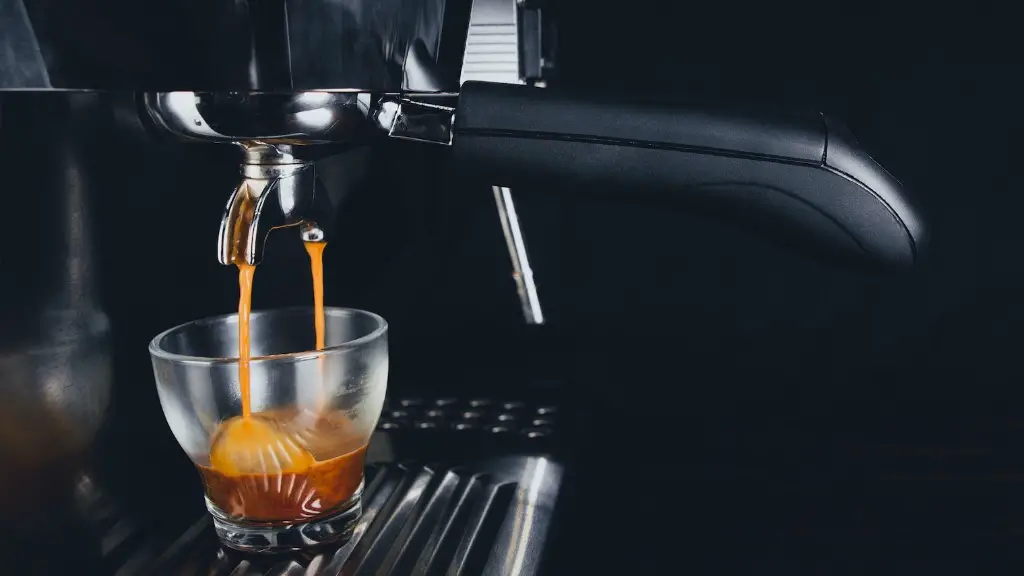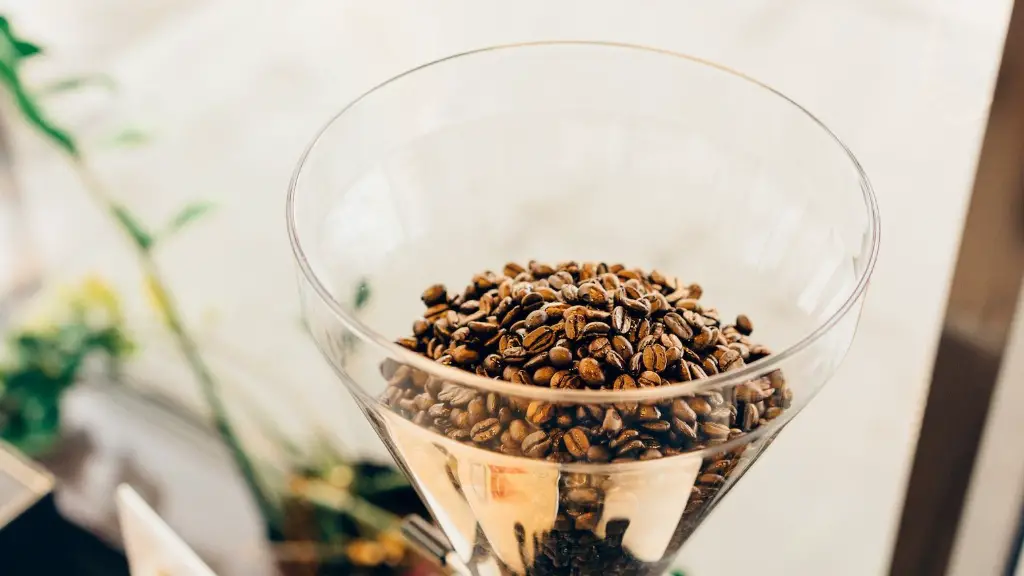Coffee is arguably the world’s most popular beverage, but for those with the digestive condition diverticulitis, should it be consumed? On the one hand, coffee can have beneficial effects with its antioxidative, anti-inflammatory and thermogenic properties, however problems can arise in those suffering from diverticulitis. Diverticulitis is a condition that affects the digestive system, caused by small pockets which form in the gastrointestinal tract. It’s usually accompanied by bloating, pain, cramps, fever and constipation.
Experts generally agree that, in those with diverticulitis, drinking coffee should be done in moderation. Caffeine is known to worsen irritable bowel syndrome symptoms such as diarrhea, cramping, and abdominal pain in those with the condition. Furthermore, too much caffeine can also lead to dehydration, which can worsen symptoms of diverticulitis. It is also worth noting that hot beverages such as coffee might also exacerbate diverticulitis symptoms due to the heat.
International Society for the Study of Fatty Acids and Lipids (ISSFAL) recommends reducing the amount of caffeine to 175mg per day, or 2 average brewed or filtered coffees. However, please note the amount of caffeine varies depending on the type of coffee and the method of brewing, so it’s important to check the labels. Additionally, decaffeinated coffee might be the better choice for those struggling with diverticulitis.
Since coffee is known to worsen gastrointestinal problems, it may be a good idea to substitute coffee for other sources of nutritional and antioxidant rich beverages. That being said, coffee is still a good source of energy and antioxidants, and if drunk in moderate amounts and when symptoms aren’t present, it may be beneficial. Therefore, those suffering from diverticulitis will need to consider their diet and lifestyle in order to make the best decisions.
Effect of Coffee on Bowel Movements
Evidence shows that coffee consumption can cause both acute and chronic effects on gut health. Studies have shown that consuming coffee has both an osmotic and stimulating effect on the intestine, which can lead to increased bowel movements. Coffee is known to stimulate the colon, which can lead to increased movements in some people, especially those with diverticulitis.
Due to this effect, those who suffer from diverticulitis should avoid drinking coffee. It can aggravate their symptoms and make them feel worse. It is therefore important to be aware of the effects of coffee on bowel movements in order to avoid any potential problems.
Along with drinking coffee, it’s important to pay attention to diet and lifestyle in order to keep symptoms of diverticulitis at bay. A high-fiber diet can help reduce symptoms, and certain supplements may be beneficial. Regular physical activity is also recommended to keep symptoms of diverticulitis under control.
Risk of Caffeinated Drinks
Caffeinated drinks can elevate blood pressure, cause an irregular heartbeat, and stimulate the nervous system, leading to anxiety and jitteriness. This is particularly true for those with diverticulitis, who should be mindful when consuming caffeinated beverages. Excessive caffeine intake can also reduce insulin sensitivity, leading to higher blood sugar levels and putting individuals at risk for diabetes.
Frequent and excessive caffeine consumption can also lead to constipation, another symptom of diverticulitis. Caffeine is a stimulant and acts as a diuretic, meaning that it can lead to an increase in urine output and dehydration. This can cause constipation and lead to a worsening of symptoms in those with diverticulitis.
Coffee consumption should be limited in those with diverticulitis in order to avoid any potential side effects. It is important to pay attention to the amount and frequency of consumption, as well as keeping an eye out for any potential side effects.
Synergistic Effects of Coffee
Coffee is known to enhance the absorption of nutrients, particularly those high in magnesium, iron and other minerals. For example, evidence shows that drinking coffee increase magnesium absorption particularly in those with low levels of magnesium. It does not however, compensate for insufficient magnesium intake. Thus individuals should still ensure adequate dietary intake of magnesium and other essential minerals.
Magnesium is critical for the proper functioning of the digestive system and can help reduce symptoms of digestive problems such as diverticulitis. It can help reduce inflammation, relax the colon and relieve constipation and diarrhea. Thus, it might be beneficial to drink coffee to increase the absorption of magnesium and other minerals required in the digestive system.
Yet, it is important to be aware of the increased sensitivity to the effects of caffeine in people with diverticulitis. Coffee should be enjoyed in moderation, perhaps once a day or after meals, depending on individual sensitivity. Furthermore, it is important to keep an eye out for any unwanted symptoms that might be exacerbated by coffee.
Alternatives to Coffee
It is beneficial to explore alternatives to coffee so as to best account for individual digestive health. It is worth noting that there are multiple drinks which offer similar health benefits to coffee. For example, herbal teas are an excellent way of obtaining antioxidants without having to worry about potential aggravating effects of caffeine.
Herbal teas such as chamomile and ginger have often been used to combat digestive problems, since they can help relieve cramping, bloating and nausea. In addition to this, green tea and white tea have antioxidant properties that have similar benefits to those of coffee, although these two also contain caffeine. There are also various caffeine-free options such as dandelion tea which has been shown to reduce inflammation and boost the immune system.
Cane juice, coconut water and kefir are also refreshment options which benefit gut health and offer potent antioxidant properties. Coconut water is known to improve digestion and support the immune system, while kefir is known to help re-balance the bacterial flora in the gut, which can be beneficial to those with diverticulitis.
Coffee During Flare-Ups
It is often recommended to avoid drinking coffee during flare-ups of diverticulitis. This is because the symptoms of this condition can be intensified by caffeine consumption. Caffeine has been known to increase the levels of anxiety and stress in those with diverticulitis. Furthermore, coffee can also cause gastric acid reflux, leading to increased discomfort.
It’s important to keep in mind that there is evidence suggesting that regular and moderate coffee consumption might be beneficial in those with diverticulitis. However, it is critical to be mindful of individual sensitivities and tolerance, as well as any adverse effects that might occur. If any symptoms are experienced, it is best to reduce the amount and frequency of coffee consumption.
Dietary Lifestyle Changes
Although coffee can help individuals reduce symptoms of diverticulitis, it is important to pay extra attention to diet in order to best combat the condition. Additionally, certain lifestyle changes can be beneficial. Specially tailored diets, such as the low-fiber diet, have been used to reduce symptoms of diverticulitis. This type of diet is high in protein and low in fats and carbohydrates, and is known to be effective in reducing symptoms.
Apart from dietary individualisation, it is important to also maintain a healthy lifestyle in order to reduce flare-ups and keep symptoms at bay. Regular physical activity as well as adequate rest and sleep can help reduce symptoms of diverticulitis. Additionally, attention should be paid to stress management in order to reduce the risk of flare-ups.
Coping Strategies
When suffering from a condition such as diverticulitis, it is important to be mindful of diet and lifestyle in order to reduce symptoms and flare-ups. Various coping strategies can be beneficial. For example, mindfulness can help individuals reduce stress, improve concentration and manage emotions. In addition, relaxation techniques such as deep breathing or yoga can help individuals cope with stressful situations and improve mental well-being.
It is also important to be mindful of the triggers of diverticulitis. These may include stress, anxiety and dietary changes. Thus, it is critical to be mindful of any triggers and take necessary measures in order to avoid potential flare-ups.
It is also important to pay attention to the symptoms of the condition and be aware of any changes. It is recommended to keep a food journal, noting down any foods that might aggravate symptoms. It is also a good idea to regularly monitor medication in order to ensure that treatment is effective.





